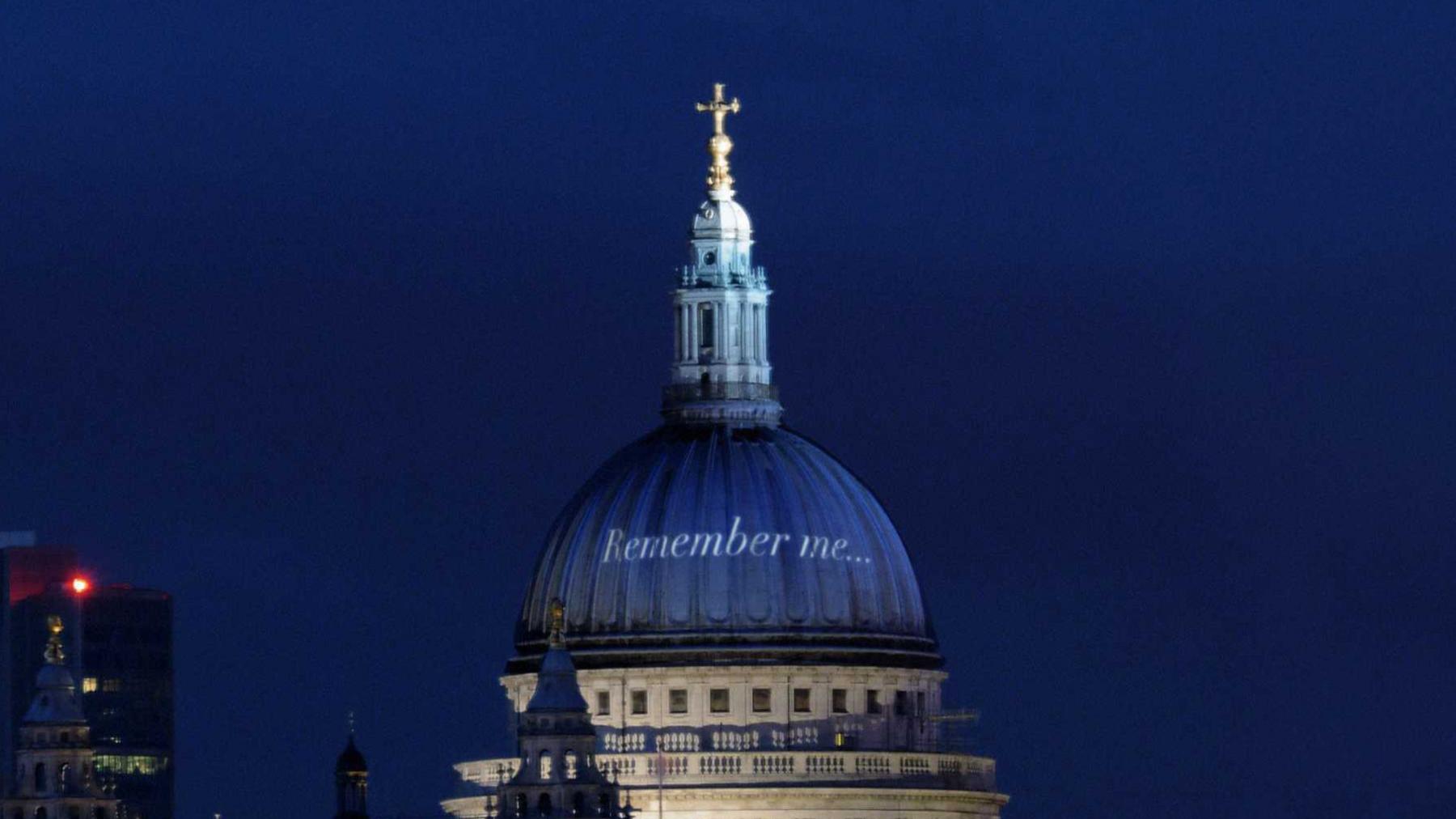St Paul's Cathedral could close without tourism cash
- Published
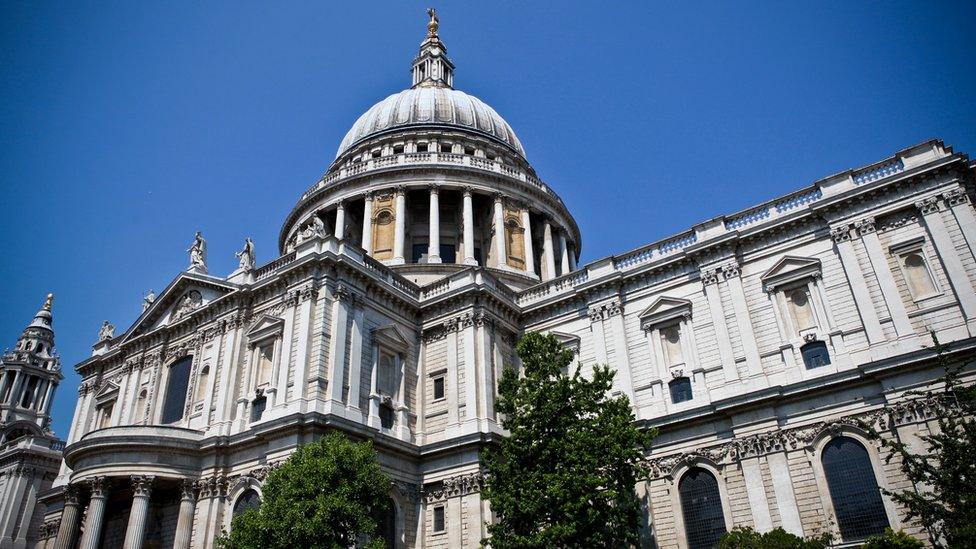
The current St Paul's Cathedral was built between 1675 and 1710 and replaced a previous version destroyed in the Great Fire of London
St Paul's Cathedral may have to close permanently if more regular funding is not found, bosses have warned.
The world-famous London landmark relies almost entirely on tourist income from ticket sales and has seen its finances devastated by the pandemic.
The building's income dropped by 90% in 2020 as it remained shut. There has been a similar fall so far this year.
Dean of St Paul's, the Very Rev Dr David Ison, said "big decisions" were needed for the historic building.
St Paul's is facing its worst financial crisis in 300 years, according to those who run it.
While it received £3.3m from the government's £1.57bn culture recovery fund, the annual running costs alone amount to £8m per year even after a restructure.
Some also fear visitor numbers will never return to pre-pandemic levels as countries around the world continue to grapple with Covid-19.
Dr Ison said the last year had involved a lot of "crisis management". He is worried about how the building can be future-proofed without being given some ongoing outside assistance.
"If we can't raise the resources to be able to employ the people to look after the building and pay for the heating and lighting, we would have to shut our doors," he said.
Nearly all the cathedral's reserves have been spent and although some staff have been furloughed, a restructure has seen almost 25% made redundant.
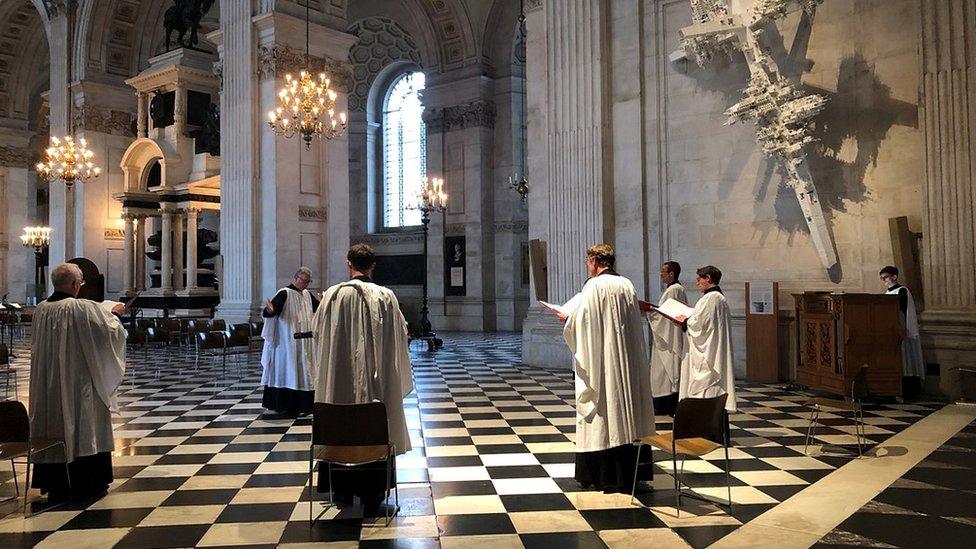
The Vicars Choral has been in existence since the 13th Century
There are fears that the internationally renowned St Paul's Cathedral choir could also be at risk.
Alongside 30 choirboys, it is made up of 12 professional singers who provide the different ranges enabling the choir to sing its repertoire.
Known as the Vicars Choral, the group has been in existence since the 13th Century but the cost of continuing to pay for the adult singers is in question.
Andrew Carwood, St Paul's director of music, said other expenses mean they cannot be funded at the moment.
"We have to plan and it's irresponsible for me not to consider all the options but I'm going to do everything in my power - and I know that the cathedral is here to make sure we find an answer to the problem we face," he said.
Almost all renovation projects at the cathedral have also been shelved.
One critical project which has been cancelled is the replacement of large sections of the 7,000 sq m (75,300 sq ft) lead roof, some of which dates back to the time of Sir Christopher Wren, the architect of the cathedral.
In March 2020, at the same time as when the pandemic hit, a £15m programme of works to replace the ageing lead roof was about to be put out to tender.
But that has been cancelled as the money set aside for the project has been spent to keep the cathedral afloat.
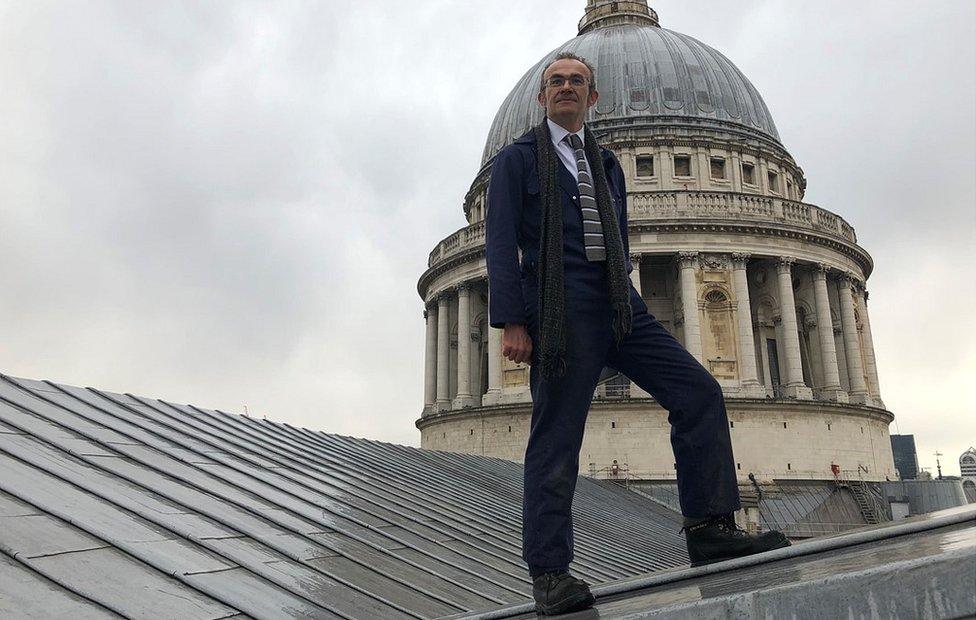
Oliver Caroe said the historic building was "rotting"
Oliver Caroe, the surveyor of fabric at St Pauls, said the building was "rotting" and his team currently have to patch things up and seal the gaps, but "there's only so long you can do that for".
"We have collections under these roofs, really precious objects, and there are buckets next to them, covered in plastic because the roof leaks," he explained.
"I think everyone would be shocked if this building ran into trouble. It is in trouble now."
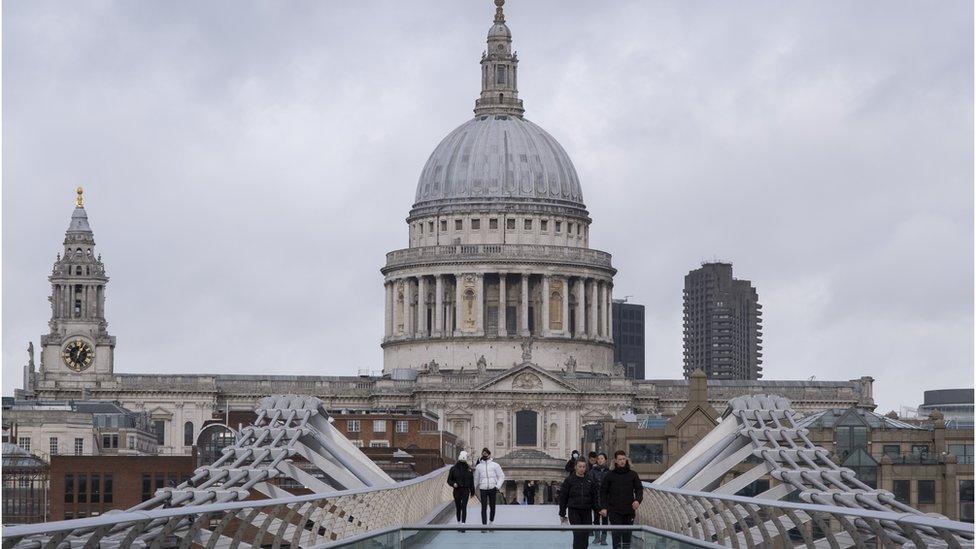
Almost all renovation projects at the cathedral have been shelved
Dr Ison said the Church of England has 16,000 churches and diocese to run and most of its income pays for clergy.
"These heritage buildings belong to all of us and the church has been the custodian for many generations, but the church no longer has the income to do that, it's just spread too thinly.
"We've got some big decisions in our country about our heritage and how we're going to manage that going forward," he said.
Related topics
- Published1 May 2021
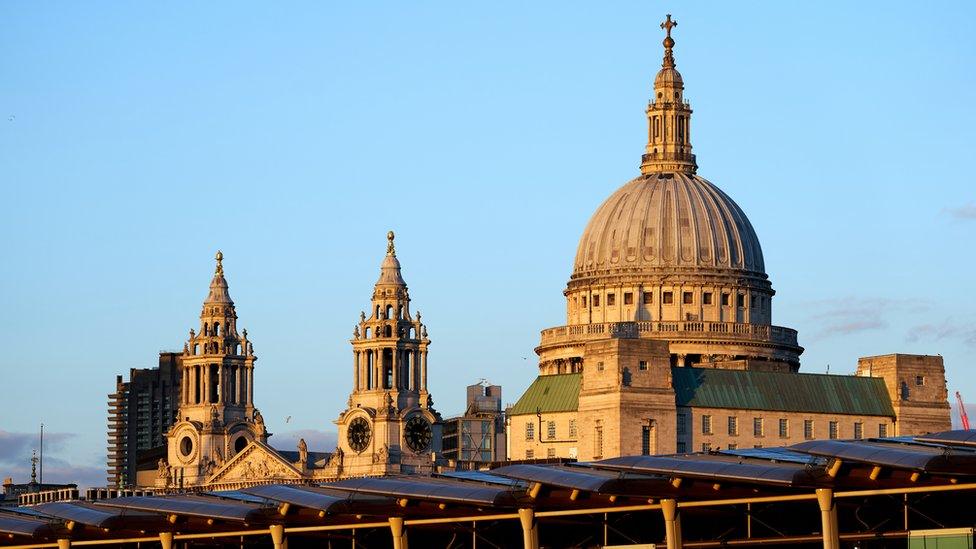
- Published7 November 2020
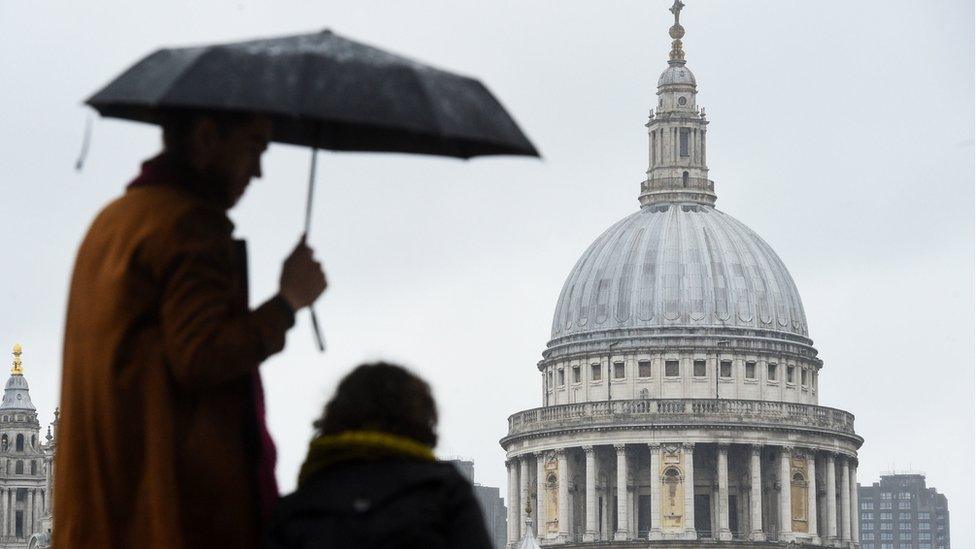
- Published26 July 2020
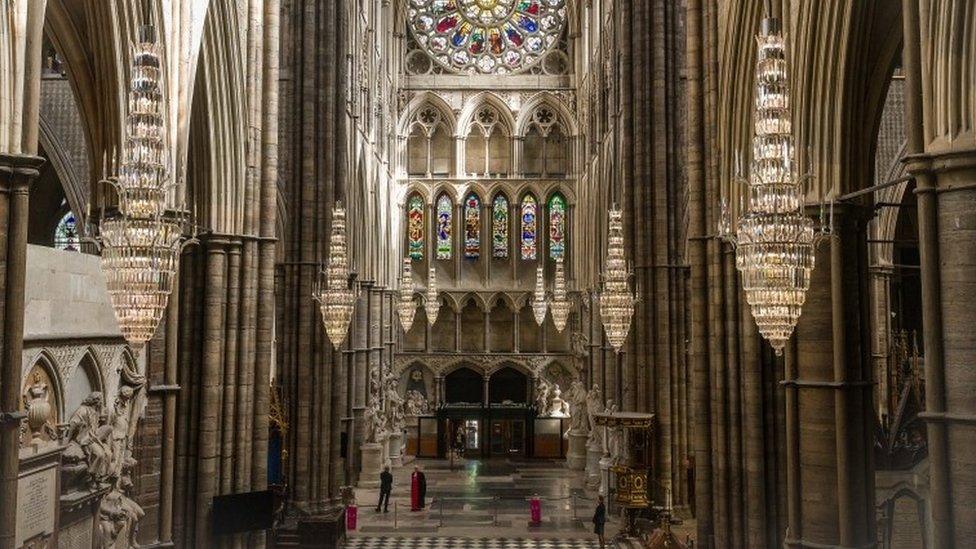
- Published23 July 2020
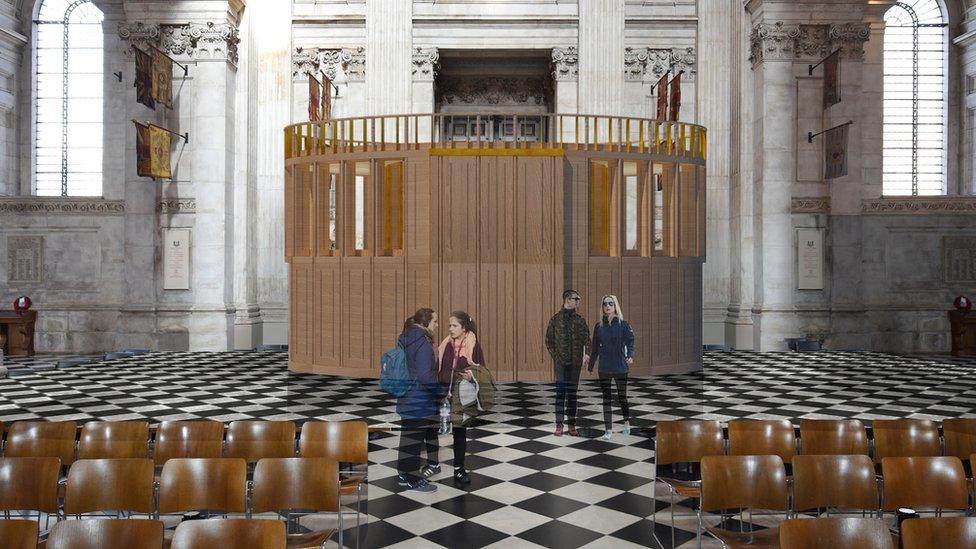
- Published22 May 2020
